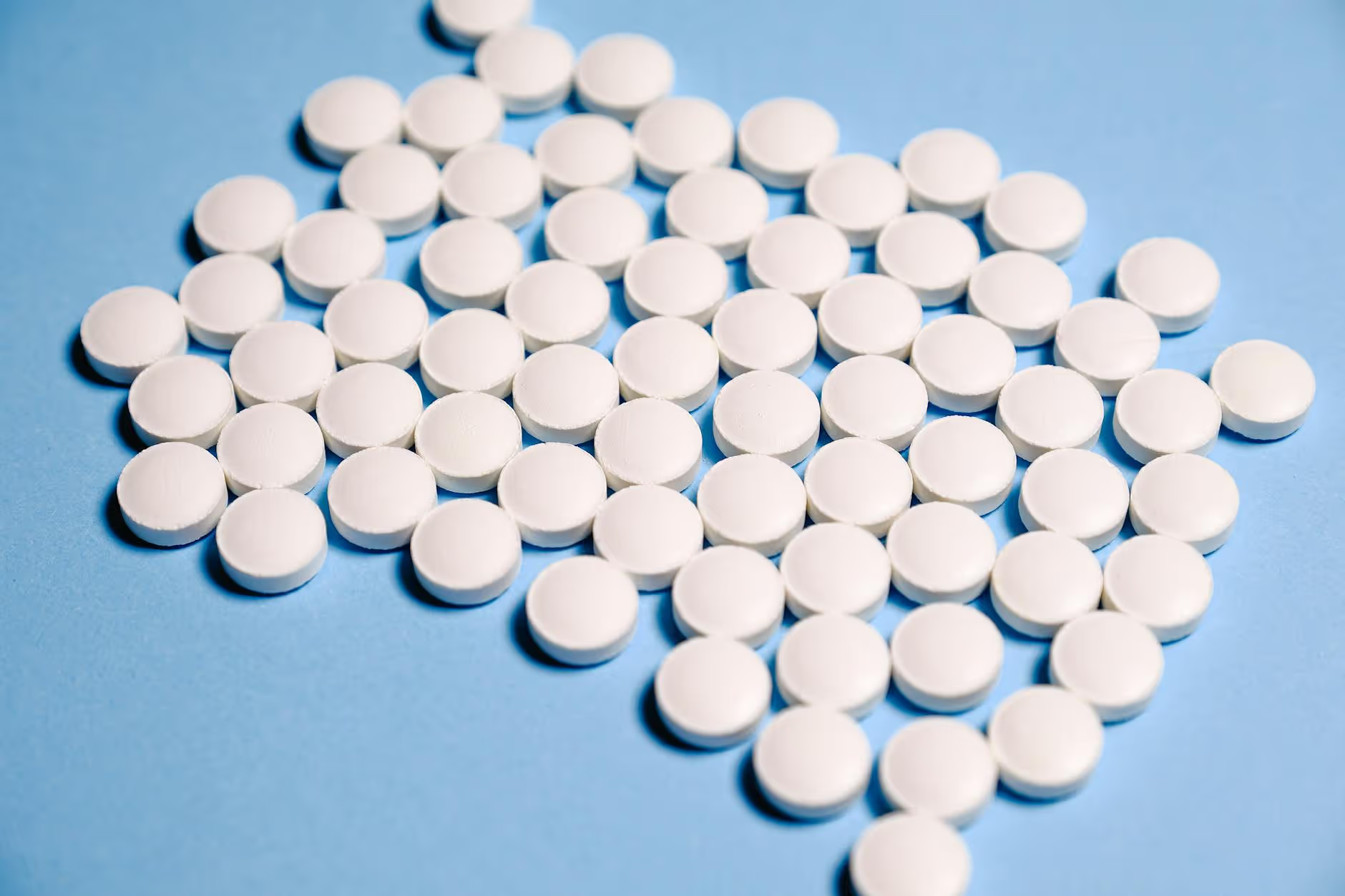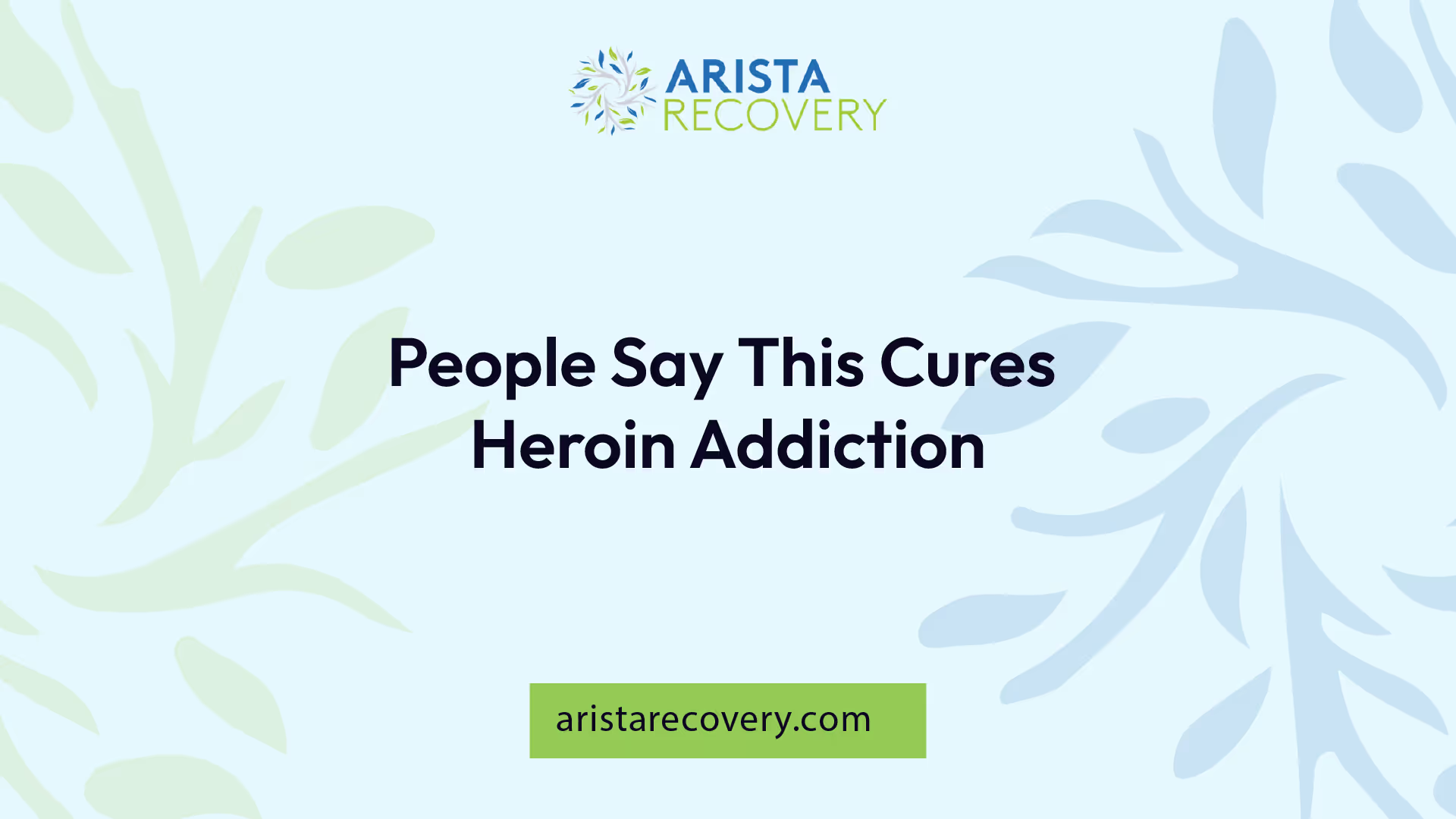People Say This Cures Heroin Addiction

Treatment Options for Heroin Addiction
Heroin addiction can often require a multifaceted treatment approach. Various methods are utilized to assist individuals on their path toward recovery. These include medications for opioid use disorder and behavioral therapies designed to support long-term recovery.

Medications for Opioid Use Disorder
Pharmacological treatments play a crucial role in managing opioid use disorder, specifically for those struggling with heroin addiction. Effective medications include agonists, partial agonists, and antagonists, which are tailored to meet the medical needs of each individual. Commonly prescribed medications include:
MedicationTypePurposeMethadoneAgonistReduces cravings and withdrawal symptomsBuprenorphinePartial AgonistAlleviates cravings while reducing misuseNaltrexoneAntagonistBlocks the euphoric effects of opioids
These medications not only assist in alleviating cravings and lessening withdrawal symptoms during detoxification but also help individuals remain in treatment by increasing retention rates. Research from the National Institute on Drug Abuse emphasizes that medication-assisted treatment decreases drug use and related criminal activity among users.
Medications like these can be utilized both in the short term and long term, with some approved for use in pregnant women to prevent neonatal abstinence syndrome [1].
Behavioral Therapies for Heroin Addiction
In addition to medications, behavioral therapies are an essential component of treatment for heroin addiction. These therapies help modify individuals' expectations and behaviors related to drug use. Effective approaches include:
Studies have shown that combining these behavioral therapies with pharmacological treatments can improve the effectiveness of the recovery process [2]. By addressing both the psychological and physiological aspects of addiction, individuals can achieve a more comprehensive recovery.
For more information on how heroin addiction can develop and the various factors influencing it, including the transition from prescription painkillers to heroin, please visit heroin addict started by prescription painkillers and prescription painkillers and heroin.
Integrated Approach to Treatment
An integrated approach to treating heroin addiction combines both pharmacological and behavioral therapies, offering a comprehensive strategy for recovery. This method addresses the complex needs of individuals struggling with heroin use disorder and enhances their chances of achieving long-term recovery.
Benefits of Combining Medications and Therapies
The integration of medications and behavioral therapies is widely regarded as the most effective treatment strategy for heroin addiction. Research indicates that this approach increases retention in treatment programs and decreases drug use, infectious disease transmission, and criminal activity. Medications used in this context are tailored to meet individual medical needs, thereby easing cravings and alleviating physical symptoms during the detoxification phase [2].
Combining these treatment modalities enhances the overall effectiveness of the recovery process, whereby:
BenefitsDescriptionIncreased RetentionPatients are more likely to stay in treatment programs, leading to better outcomes.Reduced CravingsMedications help manage urges for heroin, supporting individuals in their recovery.Improved Mental HealthBehavioral therapies assist in modifying attitudes and behaviors associated with drug use.Lowered Risk of RelapseIntegrated treatments decrease the likelihood of returning to substance use post-recovery.
Behavioral therapies focus on teaching individuals how to manage triggers and cope with stressors that may lead to substance use. This comprehensive approach fosters both physical and mental wellness, giving individuals the tools they need to navigate their recovery journey successfully.
Restoring Normalcy and Reducing Risks
Integrating pharmacological treatments with behavioral therapies significantly aids in restoring normalcy to brain function and behavior. This dual focus reduces the risks associated with heroin addiction, such as disease transmission and criminal behavior. Moreover, individuals undergoing integrated treatment are generally more likely to gain employment and rebuild their lives [2].
Here are some of the key ways in which this integrated approach fosters recovery:
OutcomesImpactBehavioral NormalizationHelps individuals regain control over their actions, reducing impulsive and risky behaviors.Medical StabilityAddresses physical health issues related to drug use, leading to improved overall health.Enhanced Employment RatesIndividuals can return to the workforce, promoting self-sufficiency and stability.Reduced Criminal ActivityBy decreasing drug dependency, the likelihood of engaging in illegal activities diminishes
By addressing a person's medical, mental, and social needs, the integrated approach offers a well-rounded solution for those seeking to overcome heroin addiction. It provides a structured pathway towards lasting recovery while enabling individuals to lead healthier, more fulfilling lives. For those who might have started their addiction journey with prescription painkillers, understanding this pathway can be essential for a successful transition to sobriety.
Effects and Risks of Heroin Use
Long-Term Health Consequences
The long-term use of heroin can result in severe health issues. Users may experience a range of complications that can affect multiple body systems. Key health problems associated with prolonged heroin consumption include:
Additionally, those who use heroin are at a heightened risk for infectious diseases, which may include:
The wide-ranging health consequences emphasize the importance of seeking help for those encountering heroin addiction. For more details on the effects of heroin, visit MedlinePlus.
Health IssueDescriptionLiver DiseaseImpaired liver function, potential liver failureKidney DiseaseDamage to renal function, possible dialysis requirementLung DiseaseChronic respiratory issues, increased risk of infectionsMental DisordersAnxiety, depression, other psychological issuesAbscessesSkin infections that can lead to severe health complications
Risks of Heroin Overdose
Heroin overdose is a significant concern, particularly due to the unpredictable nature of the drug's strength or purity. The risks associated with heroin overdose are formidable and can lead to life-threatening situations. Overdose can result in:
Understanding these risks is crucial for users and their families to prevent fatal outcomes. Overdose remains a constant danger due to the variability in illicit drugs, which can often be compounded by high-potency substances such as fentanyl. More information regarding the dangers associated with heroin can be found in our article on fentanyl laced heroin killing addicts.
The serious long-term health consequences and the substantial risks posed by overdose underscore the necessity for effective treatments and cures for heroin addiction.
Role of Peer Support in Recovery
Peer support plays a vital role in the journey to overcoming heroin addiction. It provides individuals with a community of support, helping them navigate the challenges of recovery. Two primary types of peer support groups are psychoeducational groups and skills development groups.
Psychoeducational Groups
Psychoeducational groups are designed to educate clients about substance abuse, related behaviors, and the consequences of addiction. These groups aim to instill self-awareness, suggest avenues for growth, and provide a comprehensive understanding of the recovery process. The overall goal is to motivate individuals towards recovery by enhancing their knowledge and awareness.
Key benefits of joining psychoeducational groups include:
ComponentDescriptionEducationInformation on substance abuse and recovery processesAwarenessInsight into personal behaviors and consequencesMotivationEncouragement to take steps toward recovery
Skills Development Groups
Skills development groups focus on imparting necessary coping skills for achieving and maintaining abstinence. These groups teach individuals how to manage triggers, deal with urges, and apply broader skills for ongoing sobriety. The ultimate aim is behavior change through fostering new skills [4].
Benefits of skills development groups include:
Focus AreaSkills TaughtTriggersIdentifying and managing personal triggersUrgesTechniques to cope with cravingsInterpersonal SkillsCommunicating and interacting effectively
Both psychoeducational and skills development groups offer crucial support to individuals in recovery from heroin addiction. They help build resilience and provide the tools needed for a sustainable recovery journey. For a deeper dive into cognitive strategies used in recovery, consider exploring cognitive-behavioral groups aimed at modifying behavior patterns.
Cognitive-Behavioral Therapy in Recovery
Cognitive-Behavioral Therapy (CBT) plays a significant role in the recovery process for those overcoming heroin addiction. This therapeutic approach emphasizes modifying behaviors and thought patterns associated with addiction, helping individuals develop healthier coping strategies.
Modifying Behavior Patterns
CBT is designed to help individuals identify and change harmful behaviors connected to their heroin use. Through structured sessions, participants work with therapists to address negative thought processes and the behaviors that stem from them.
A primary focus of CBT is to alter learned behaviors that contribute to substance abuse. By emphasizing the importance of self-awareness and self-control, individuals can learn to recognize triggers and high-risk situations that may lead to relapse. Skills development groups often accompany CBT, aimed at imparting necessary coping mechanisms to manage triggers and cravings effectively [4].
The table below outlines common behavior patterns addressed in CBT for heroin addiction:
Common Behavior PatternsModifications IntroducedAvoidance of triggersConfrontation and exposure strategiesImpulsive decision-makingStructured decision-making processesNegative self-talkPositive affirmations and cognitive restructuring
Cognitive Restructuring Techniques
Cognitive restructuring is a key methodology within CBT that focuses on altering dysfunctional thoughts and beliefs surrounding addiction. This technique encourages individuals to challenge and reassess negative thoughts, enabling them to replace these with more positive and realistic beliefs about themselves and their recovery journey.
Participants learn to identify cognitive distortions—often unrealistic beliefs that contribute to their addiction—and develop healthier, more constructive ways of thinking. Cognitive restructuring techniques may include:
In summary, the cognitive-behavioral therapy process integrates methods for behavioral modification with cognitive restructuring techniques, providing a holistic approach to recovery. As part of a comprehensive treatment program, CBT can significantly enhance the chances of sustainable recovery. For more information on various treatment options, see our article on cures heroin addiction.
Exploring effective strategies for managing heroin addiction is essential, especially when combined with other therapeutic modalities. Having a diverse treatment plan enhances the support system for individuals seeking recovery from addiction.
Strategies for Successful Recovery
Effective strategies for overcoming heroin addiction include relapse prevention approaches and multifaceted treatment programs. These strategies aim to address the complex nature of addiction and support individuals on their path to recovery.
Relapse Prevention Approaches
Relapse is common in addiction, reflecting the chronic nature of the disorder. However, it does not signify treatment failure. Newer treatment methods focus on preventing relapse, acknowledging that relapse rates for drug use resemble those of other chronic medical conditions. If an individual experiences a relapse, it is essential to consult with a healthcare provider to adjust the treatment plan or explore alternative strategies [3].
Here are some key relapse prevention techniques:
StrategyDescriptionIdentifying TriggersRecognizing situations or emotions that lead to cravings can help individuals develop coping strategies.Developing Coping SkillsLearning techniques such as deep breathing, mindfulness, or distraction can aid in managing cravings effectively.Support SystemsEngaging with support groups or involving family and friends in recovery efforts can provide emotional support and accountability.Continuing CareRegular follow-ups and participation in ongoing therapy or counseling can reinforce recovery efforts and monitor progress.
Multifaceted Treatment Programs
The most effective treatment programs acknowledge the multifaceted impact of addiction on an individual's life. They address not only the physical aspects of addiction but also the medical, mental, social, occupational, family, and legal needs that may arise [3].
A comprehensive treatment plan may include:
ComponentPurposeMedicationsHelp individuals stop using drugs and support long-term recovery by preventing relapse.Behavioral TherapiesEssential for modifying attitudes and behaviors related to drug use, managing triggers, and increasing treatment effectiveness.CounselingProvides a platform for individuals to discuss their challenges and progress, fostering emotional support.Social ServicesAssists patients in addressing any legal, financial, or social issues that may affect their recovery.
Effective treatment for opioid addiction combines medication with behavioral therapies. Detoxification alone is not sufficient for recovery; a tailored approach that meets each individual's unique needs is necessary for sustained healing [3].
By utilizing these strategies and recognizing addiction as a treatable condition, individuals can work towards a more fulfilling life free from heroin dependence. For more information on how addiction develops, consider reading about how some individuals become addicted through prescription painkillers and the connection between prescription painkillers and heroin.
References
[2]:
[3]:
[4]:
You’re not alone in this.
When mental health challenges and addiction intersect, it can feel isolating. At Arista, we offer compassionate, evidence-based, and trauma-informed care to help you heal, grow, and move forward.
You’re not alone in this.
When mental health challenges and addiction intersect, it can feel isolating. At Arista, we offer compassionate, evidence-based, and trauma-informed care to help you heal, grow, and move forward.
Support that moves with you.
You’ve taken a brave first step. At Arista Recovery, we’re here to help you continue with best-in-class care designed for long-term healing and support.
.webp)






